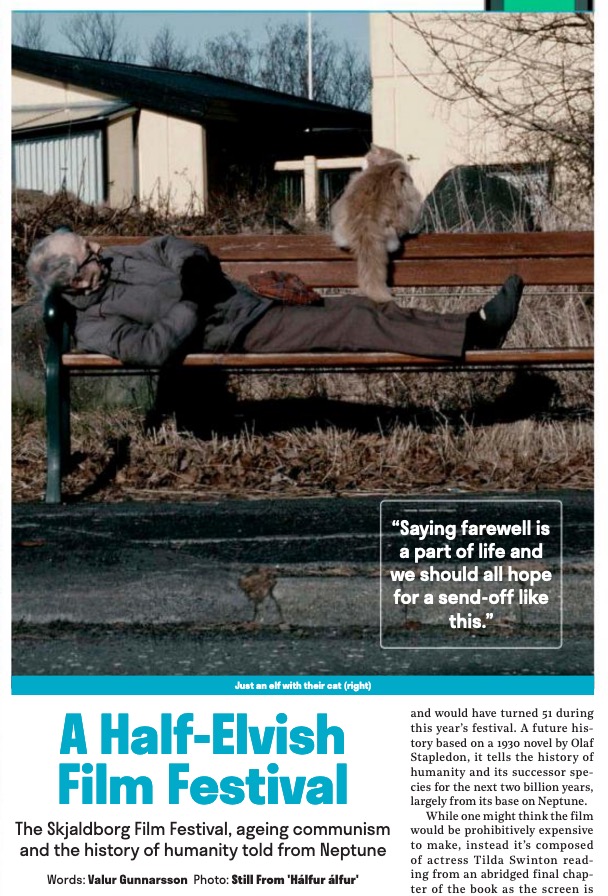
Half Elf had its Icelandic premiere at the Skjaldborg, Icelandic documentary film festival, in Bíó Paradís in Reykjavík on the 19th of September, where it won the grand jury prize. The jury, which consisted of director Grímur Hákonarson, director Ugla Hauksdóttir and radio journalist Vera Illugadóttir had this to say about the film:
“A strong, solid story, sincerely told; an unpretentious film that captivates you from the first shot and makes you laugh and cry in equal measure. It features priceless characters that have a strong bond with nature and Icelandic cultural heritage. The film reminds you to not take life too seriously and to make sure you have fun, yet it also makes you think about death and it’s aftermath.”
“heartwarming and humane character study about a juncture in time where a hundredth birthday and a funeral might collide. Director Jón Bjarki Magnússon originally started working on the film as a project in visual anthropology and that angle gives the film more depth – this is not just a film about someone’s grandfather, but a film about a certain generation and a certain culture that is fading away. The singing that connects the main characters, the everyday traditions – peeling a banana, stirring a porridge, listening to the radio, writing down a shopping list – and the chit-chat, both between the elderly and also when Trausti performs for the camera; all of this gives an insight into a certain world that many will recognize and is really all around us, but is often forgotten, but the documentary form elevates it in a certain way.
Singing is a particularly big part of the film; singing as a unifying symbol – one starts singing and another joins in – I couldn’t help but think of my own grandfather, who was also a songster, particularly when in good company, just as many audience members probably connected Half Elf to something personal themselves. One of the strongest scene in the film is when Trausti gets a chance to sing in a group of people, after singing on his own through most of the film. The director keeps himself mostly in the distance and lets his grandfather enjoy the spotlight – the grandmother is less interested in showcasing herself, but opens up, in her own way, through singing and poetry. The film is dramatic in its nature, because it revolves around death in many ways, but is nevertheless really funny and entertaining, just like the main protagonist.”
Illugi Jökulsson, writer, journalist and former newspaper editor, was also very happy about the film:
“This is a bewitching and an uplifting film about old age. A little sad too, naturally, or perhaps bittersweet is a more accurate description. I’m fairly certain that many scenes and shots from the movie will linger in memory for a long time, and what is particularly remarkable is how Jón Bjarki trusts both himself and the audience to build a cogent picture of the old couple. You don’t get to know much about their past, bar for a few shots of the countryside, a lighthouse and a few words here and there – and this enough, you still feel like you know everything you need to know. And of course that scene with the cat is completely priceless. Congratulations Jón Bjarki and Hlín, this is a film I can heartily recommend without hesitation.”

“But the jewel in the crown of this year’s festival was ‘Hálfur álfur,’ which won the Grand Jury Prize. Here, filmmaker Jón Bjarki Magnússon documents the final days of his grandfather, leading from his 100-year birthday to his death. The film is touching but never overly sentimental—even very funny in parts. Saying farewell is a part of life and we should all hope for a send-off like this. The title is a reference to the fact that the grandfather believed himself to be a half-elf. It seems the elves came through for Skjaldborg after all.”
